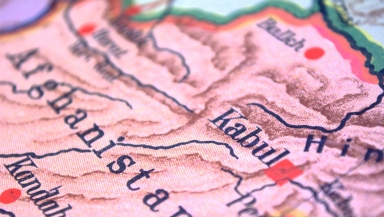
Afghan Christians and other religious minorities are unable to express their beliefs openly because they face "dire consequences, including death, if discovered by the Taliban".
That is the stark report from the United States Commission on International Religious Freedom (USCIRF) in its latest factsheet on the worsening conditions for religious minorities since the Taliban took over Afghanistan in August.
USCIRF says the decision in September by the Taliban to reinstate the Ministry for the Propagation of Virtue and Prevention of Vice is resulting in "a notoriously violent hardline Islamist policing system".
"USCIRF has received credible reports that the Taliban regime and rival militant group Islamic State-Khorasan (ISIS-K) also present in Afghanistan have intimidated, threatened, and targeted members of religious minority communities and carried out violent attacks," it says.
The Taliban has gone "door-to-door looking for US allies, former government workers, rights activists, and Christian converts", according to reports on the ground.
"Christians have received threatening phone calls, while one leader of a house church network received a letter on August 12 from Taliban militants threatening him and his family. Some Christians have turned their phones off and moved to undisclosed locations," the Commission says.
The factsheet includes estimates from the Afghan House Church Network and International Christian Concern that there are 10,000 to 12,000 Christian converts from Islam throughout the country who have practised underground over the past 20 years.
USCIRF also reports on the Taliban's violent hatred towards other Muslim groups such as the Hazara Shi'a and the Uyghurs who escaped from Communist China.
Thought to number between 2,000 and 3,000, Afghanistan's Uyghur Muslim community has "expressed fear that the Taliban could deport them to China where they face egregious persecution, which the US government has designated as genocide and crimes against humanity", the Commission says.
"There are concerns that the Chinese government could use its economic and geopolitical leverage to pressure the Taliban to deport these Uyghurs.
"Just prior to the Taliban's military takeover of Afghanistan, a top Taliban delegation traveled to China to meet with Chinese foreign minister Wang Yi in July 2021.
"The Taliban previously deported Uyghurs at the request of the Chinese government in 2000," the factsheet says.
It concludes: "While religious freedom conditions in the country were poor under the previous government, these conditions have already worsened and have become dire under the Taliban and are likely to continue to deteriorate."













